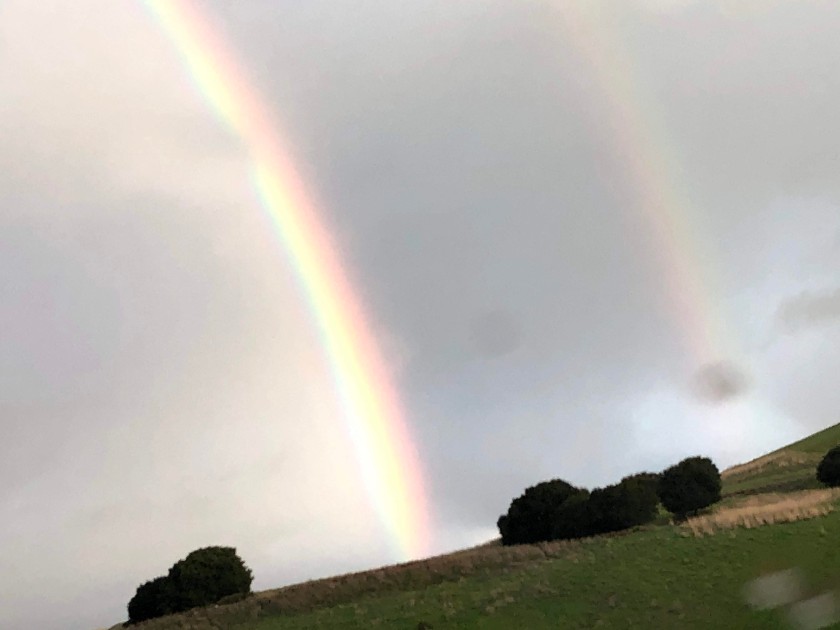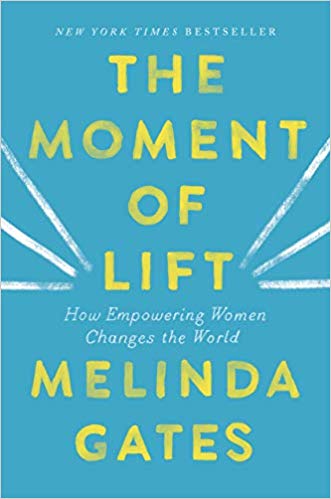Someone told me once that we lose the joy and wonder in things as we knew more and more about how things work. If we knew the conditions were right for a rainbow to form, or the planets will shine in the evening skies brighter than usual, we seem to expect them, and then lost the magic of it all.
I have pondered on that often – could adding a pleasurable anticipation make up for the lost serendipity? As we watch the bleak skies of the winter, we can wait and feel the weight of the buds in the spring snowflake 🌱 plants, or watch the tulips bulbs shoot up from the Earth admiring their sense of timing, can’t we?.
While, waiting for the rains to subside, we can nurse a secret longing for a rainbow – I know I do.
Aside from all else, what isn’t lovely about a World that has rainbows? Maybe on other planets, with different atmospheric makeups than our own, rainbows themselves manifest differently or not at all, but it is comforting to know the colors of the rainbow and their perfect arc will be this way on this Earth as long as the suns rays can diffract the light in the moisture laden droplets.

One day during the Winter holidays, I got to sit in a beach. It being the rainy season, there weren’t as many people around. There were a few beach lovers, so we curled up our beach towels and all set to greet the noisy seagulls. There I sat watching the Atlantic ocean with my umbrella open, sitting on a Mickey Mouse towel with a book in hand.
It was a few minutes afterward that we discerned the rainbow forming in the sky. How marvelous and wondrous an experience to watch the rainbow go from a faint smearing of smudged colors as though making up its mind whether to come out in all its glory or not; and then watch a colorful, bright rainbow full of the conviction of Being play on the horizon. The son came running across from where he was playing, flush with excitement pointing at the rainbow -🌈 “I knew it will come now.”
Sometimes, I wonder why we cannot be like children. Even though, they know the hows and whys behind things, they still retain Shoshin: the Zen concept of wonder as in a beginner’s mind. I smiled and patted him to sit next to me and take in the rainbow 🌈 with me.
After a while, he went back to playing in the ocean waves with his sister. I sat there, nourishing my musings with whimsy. I remembered some drawings of the daughter when she was much younger. Dolphins leapt out of the seas, with a rainbow arc-ed beautifully around them. Of course, children imagine the best possible things together – there isn’t any dearth or rationing in their imaginary worlds, is there?
“Because when you are imagining, you might as well imagine something worth while.” as Anne of Green Gables would say.
The dolphins may get to see rainbows, but the fish do not. But maybe their world is marvelous enough with a thousand prickling and tricks of light that the water medium presents to them.
Musing in a world of rainbows is nothing short of magical even if I do know the concept of light refracting and producing the colors of a rainbow. My heart still lifts.
I had been traveling during the past few weeks. One such time on my sojourns, I left my home amidst brown hills. The summer sun had toasted the hillsides, and I yearned for a little respite to the eyes. In the two weeks that I was out, the rains had lashed the area liberally, and when I came back, the hillsides had turned a marvelous green. The rolling hills lifted their misty veils every morning, and I felt my heart pound with the magic of it all. Yes, I knew the rains make the grass grow, but the transformation is still a miracle that my heart waits for every year.
When I watch the dew drops glisten on the spring snowflakes,
When I watch the rainbow makes up its mind and throw itself like a garland across the skies
When I watch the eight-legged marvels creations catch in the sunset
When I watch the waves lap and play with the sandpipers
I feel hope stir in the spirits
I feel decisive and conviction in Being
I feel solitude’s gift can be tangible and needs to be nurtured for its fragile state
I feel engaged with the planet and all its gifts
I recently read a book bySasha Sagan, that is full of the joy of being. Titled: For Small Creatures Such as We: Rituals for Finding Meaning in Our Unlikely World, the book immediately caught my attention and I savored its many truths and facts about our rituals and festivals – the meaning behind life’s celebrations.
“My parents taught me that the provable, tangible, verifiable things were sacred, that sometimes the most astonishing ideas are clearly profound, but when they get labeled as “facts”, we lose sight of their beauty. It doesn’t have to be this way. Science is the source of so much insight worthy of ecstatic celebration.” – Sasha Sagan

I was also reminded of Richard Feynman’s meditations on 🌺 flowers.
Ode to a Flower – By Richard Feynman.
There is beauty in knowledge, and wonder in anticipation. We just need a formula linking the two now.

















